Now I was cruising at the full allowed speed of 40 km/h, focusing hard on staying left. My body remembered driving on the right, and as fatigue set in, instinct took over. Every vehicle that passed made my grip on the handlebar tighten.
And then I saw it.
A four-meter-tall elephant loomed by the roadside, calmly munching leaves off a tree like it had all the time in the world. My jaw dropped. Time slowed. I passed it slowly, heart pounding, unsure if I should floor it or freeze.
Seconds later, I was in the clear. Adrenaline drained from my limbs and dopamine surged. I broke into the biggest grin I’d had in weeks and burst into laughter — the kind that only comes when you survive something slightly insane. I was happy. And terrified. And suddenly very awake.
Planning your own Tuk-Tuk adventure? Check out my guide to Sri Lanka tuk tuk routes and tips for everything you need to know.
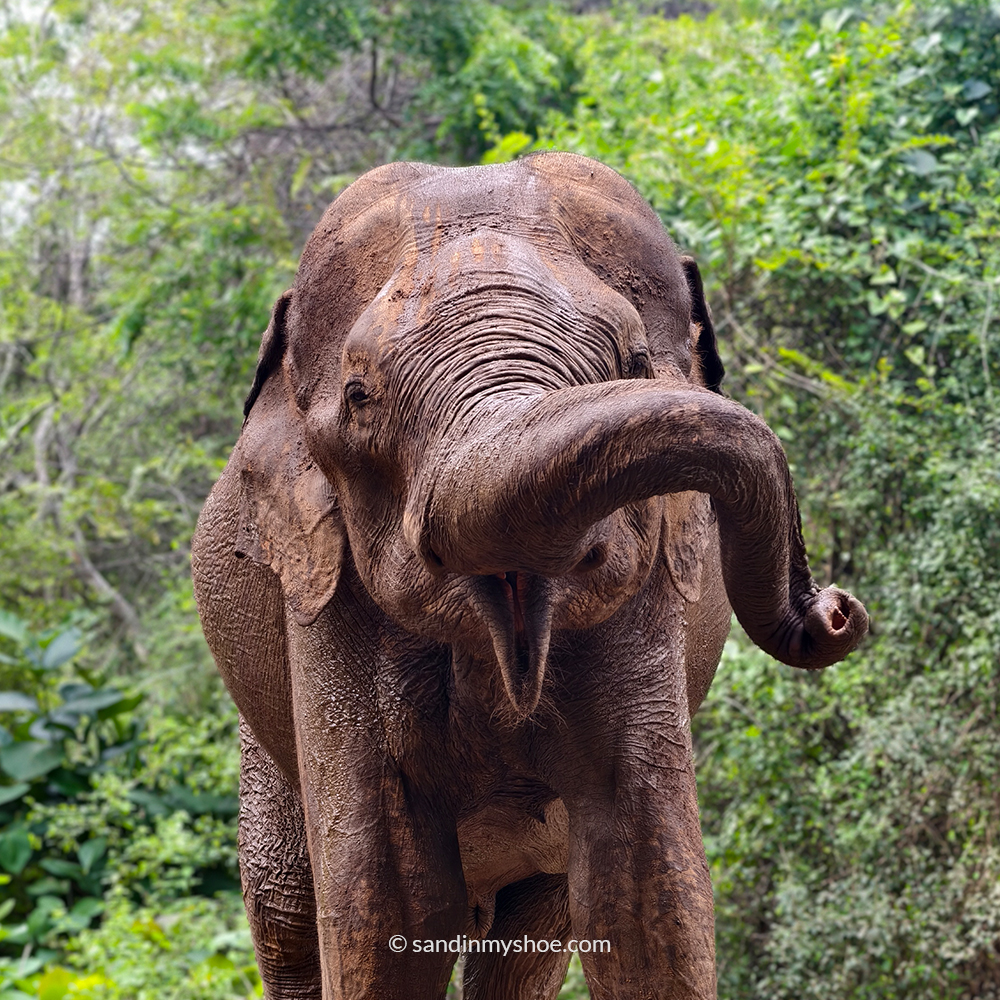
A Plateful of Surprise
Still shaken from the encounter with the elephant, I rolled into a small village hours later with one thing on my mind: food. I was starving — stomach practically digesting itself after been in Sigiriya on hikes the whole day. I’d already rejected two places that looked sketchy. Finally, I found a little spot with glowing reviews on Google and a photo of a vibrant vegetarian thali.
The owner greeted me with a huge smile, handed me a menu, then slipped out—to run a shop next door. In Sri Lanka, people wear many hats: tuk-tuk driver, shopkeeper, chef — sometimes all at once.
When the food arrived, I was blown away. Not one dish, but a tray of ten small bowls circling a mountain of rice — beans, curries, chutneys, spiced vegetables. The colors and smells were dizzying.
I’m usually a meat-lover, but this vegetarian spread hit hard. My stomach growled like a tuk-tuk engine going uphill. I devoured the first few bites in a rush — then caught myself. Slow down, I thought. Taste this. Savor it. Each spoonful was simple, but deeply satisfying.
The meal could’ve fed two, but I finished it alone — and left full, humbled, and converted. Not just to vegetarian food, but to the idea that flavor doesn’t have to be complicated to be very very delicious. What I really enjoyed about driving a tuk-tuk was the freedom to stop anywhere I wanted — like this little roadside gem.
Getting into trouble with traffic police
That meal in Sigiriya had left me satisfied and calm — maybe too calm. Because not many days after, I found myself at the center of total chaos.
I was driving through central Kandy—a busy chaotic city—on a congested road and I was doing everything right… until the roundabout. I entered it as if I were driving on the right side—straight into oncoming traffic. I froze like a leopard in jeep headlights while tuk-tuks, cars and motorbikes honked so much it felt like they were competing.
I’m used to driving on the right side. In Sri Lanka, it’s the opposite — and when I got tired, my brain finally betrayed me.
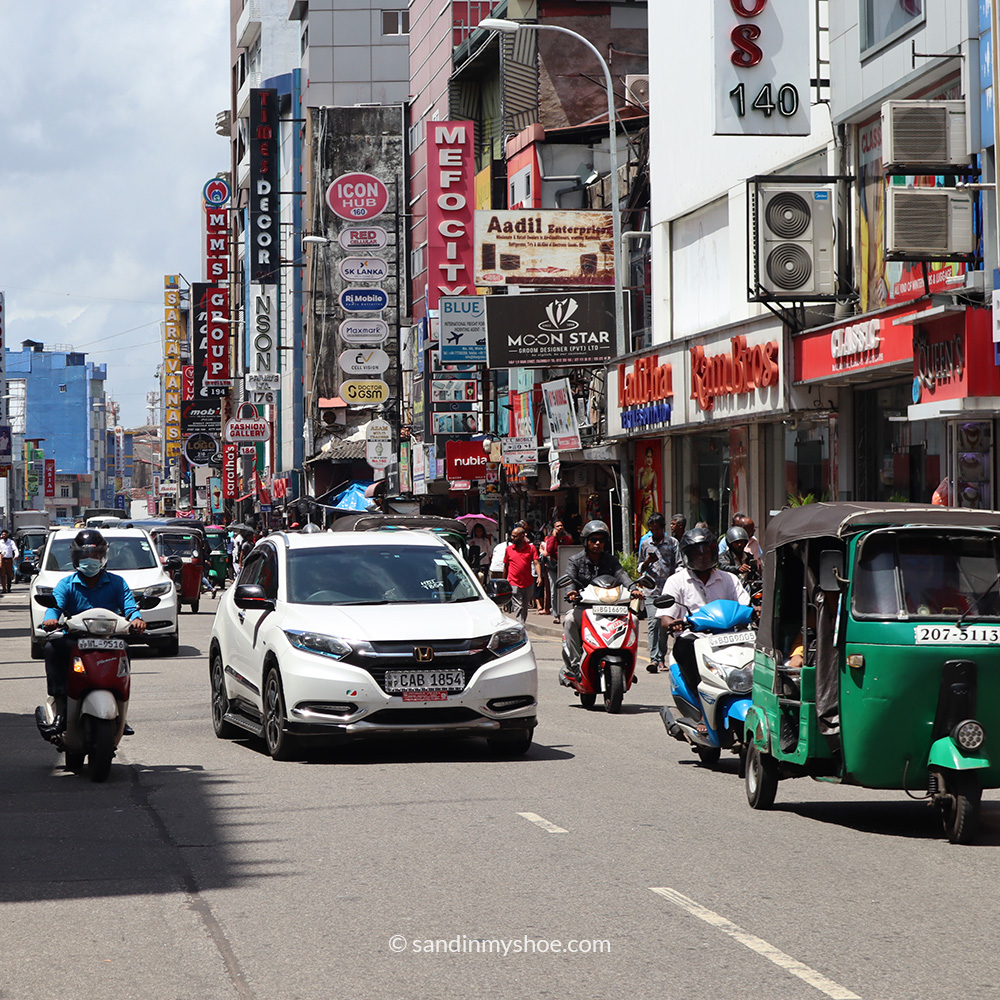
The traffic police officer blew his whistle, stepped into traffic signaled me to pull over.
At that point, I was nervous — I didn’t have the proper Sri Lankan driver’s license. My plan, if trouble came up, was to offer a small bribe. According to my tuk-tuk rental guy, a couple of dollars usually did the trick. I kept that amount in my pocket, just in case.
Weirdly enough, he also gave me someone else’s Sri Lankan driver’s license “just in case.” The only thing we had in common was that we were both white.
Another tip from my law-abiding tuk-tuk rental guy: never make eye contact with the police unless they’re actively chasing you.
The police officer straight away asks me:
“Are you drunk?”
“Not yet, of course… but probably soon.”
“Why are you driving on the wrong side?”
“I’m used to right-side traffic.”
I thanked him and started rambling — praising him, saying the community must be grateful for a traffic officer like him. After a while, I said I was in a hurry… and left.
He didn’t even ask for my license — or hint at a bribe.
Swimming in the same lake as the Crocodiles
Later in the journey, I found myself on a elevated road outside Udawalawe. To the right, a mirror-still lake stretched into the horizon; to the left, thick forest. I stopped to take photos and noticed an electric fence with a warning sign — crocodiles?
Then I spotted a family — swimming. Mom, dad, kid, even a dog — splashing around like it was a city pool. I called out to the father. After talking with the dad for a bit, he waved me over and shouted that the electricity was off. “Come join!”
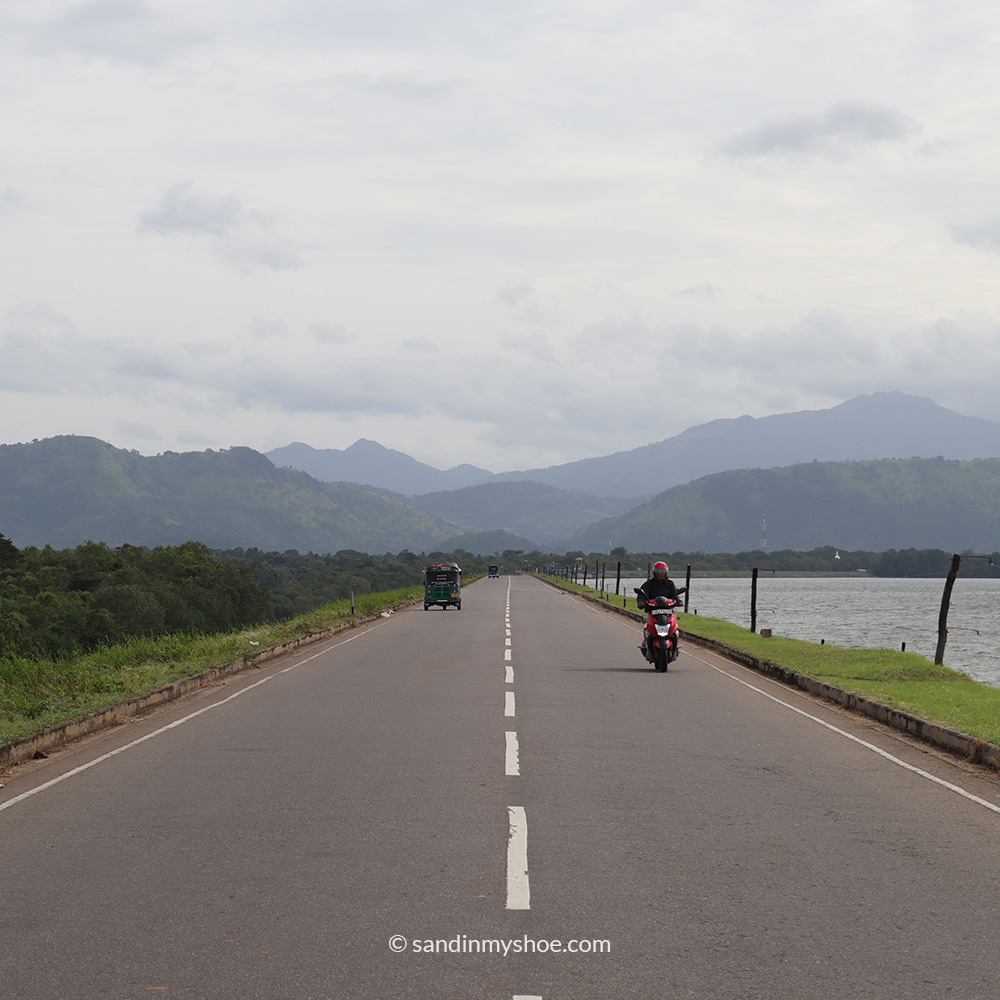
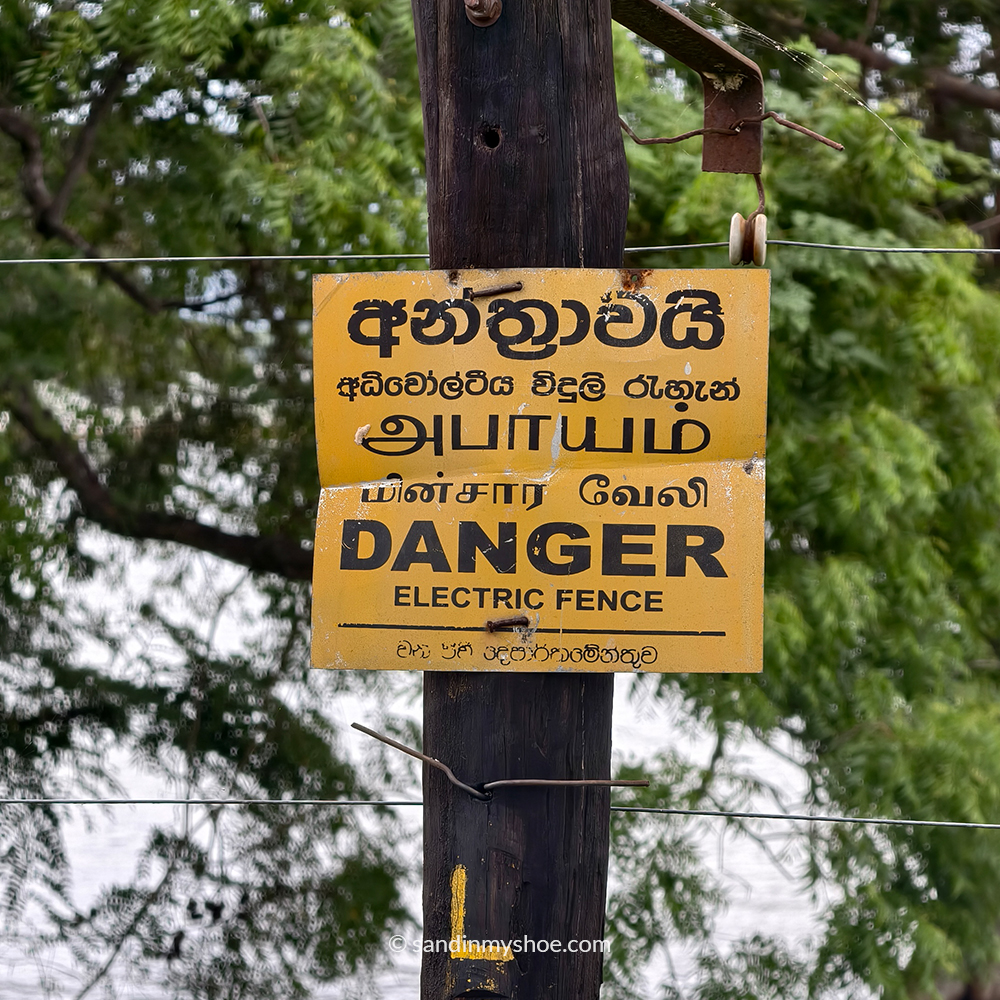
Curious, I crawled under the fence, found my towel and shorts in the tuk-tuk, and stepped into the lake. The water was cool, glassy, peaceful.
“So… are there crocodiles here?” I asked, half-joking.
“Yeah, but not here,” he said, casually playing with his dog. “They’re usually on the other side.”
“Usually?!” I stared at him.
He just laughed. “I’ve been swimming here since I was a boy.”
He told me he worked as a safari guide and knew the lake well. That calmed me. We talked as we floated, and he pointed to a small island nearby. “That’s where the baby elephants live — part of the transit home. They’re orphaned, and rangers raise them.”
Around five thirty, the elephants began their slow march across a narrow land bridge toward the mainland for their evening milk. I dried off, grabbed my camera, and stood silently watching them.
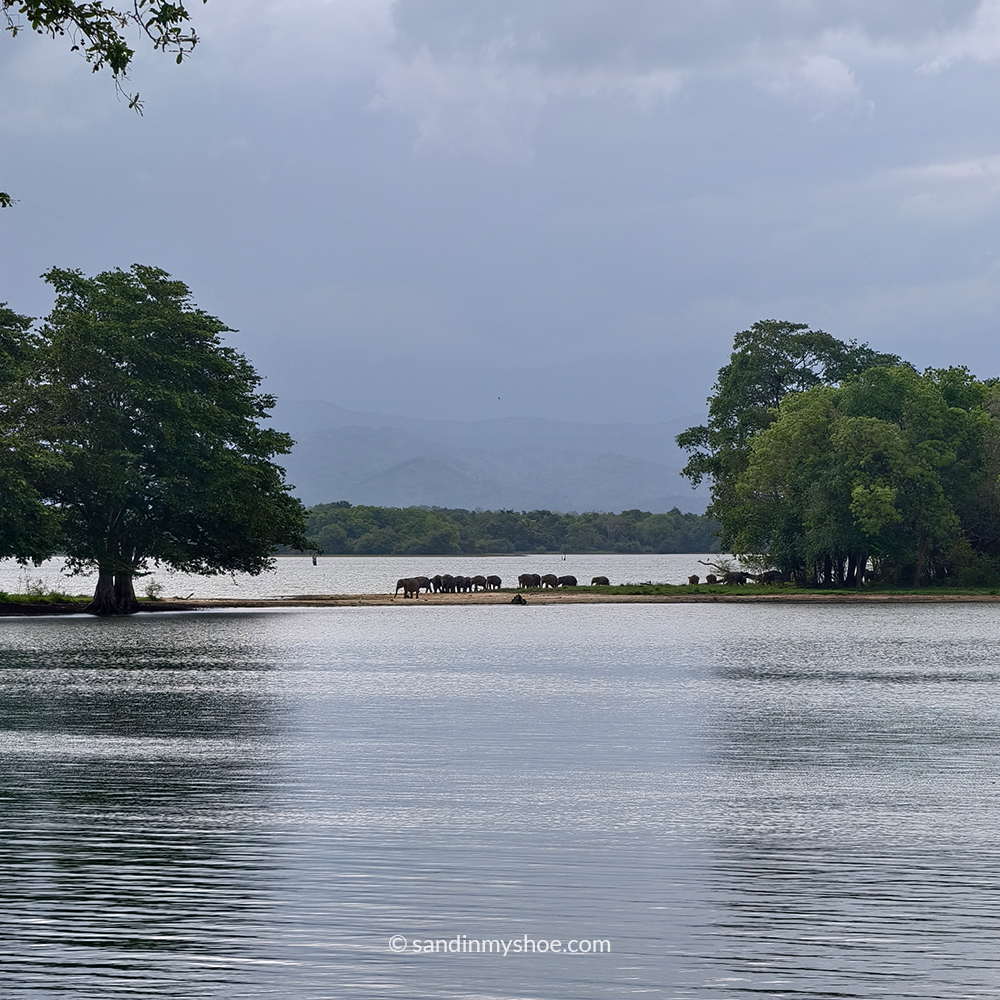
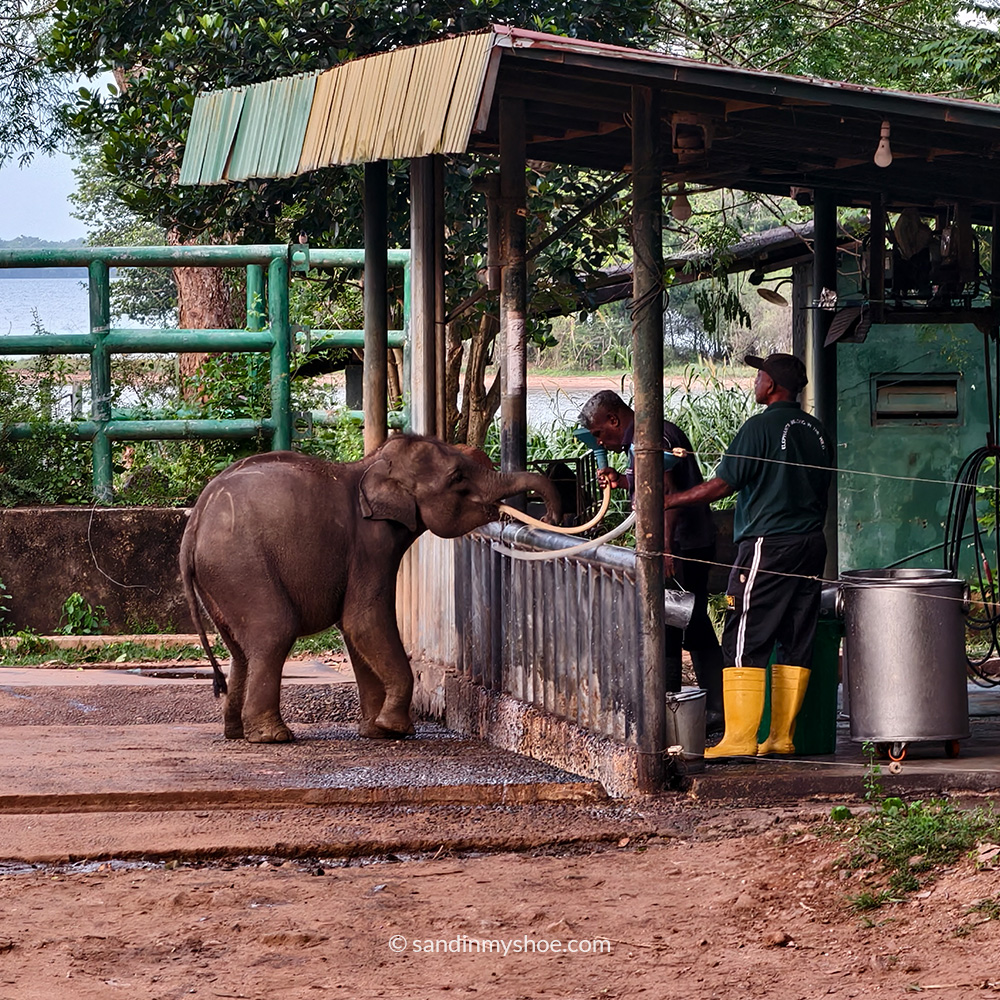
The scene was surreal: elephants silhouetted against a pink sky, ripples spreading across still water. Life here wasn’t just wild — it was quietly magical.
Curious about the elephant transit home? In addition to watching the baby elephants migrate — you can also watch the elephants being fed — it’s marked in my Sri Lanka National Parks Map post.
There’s something about Sri Lanka’s wilderness that keeps you alert — like nature is always one step ahead. Wilpattu was the first time I felt that. I was on safari when a gust of wind blew my cap off
Leopard Check at Wilpattu
Wilpattu National Park is vast—wilder and emptier than I expected. Driving through it in a safari jeep, I scanned the landscape for signs of wildlife. The air felt heavy with silence and possibility. We passed open plains, thick brush, and waterholes that looked like perfect ambush spots for predators.
Somewhere along the route, a gust of wind snatched my cap and sent it tumbling behind us. Instinctively, I tapped the driver and jumped off the still-rolling jeep. But before I took a step toward the cap, something primal kicked in: check for leopards first.
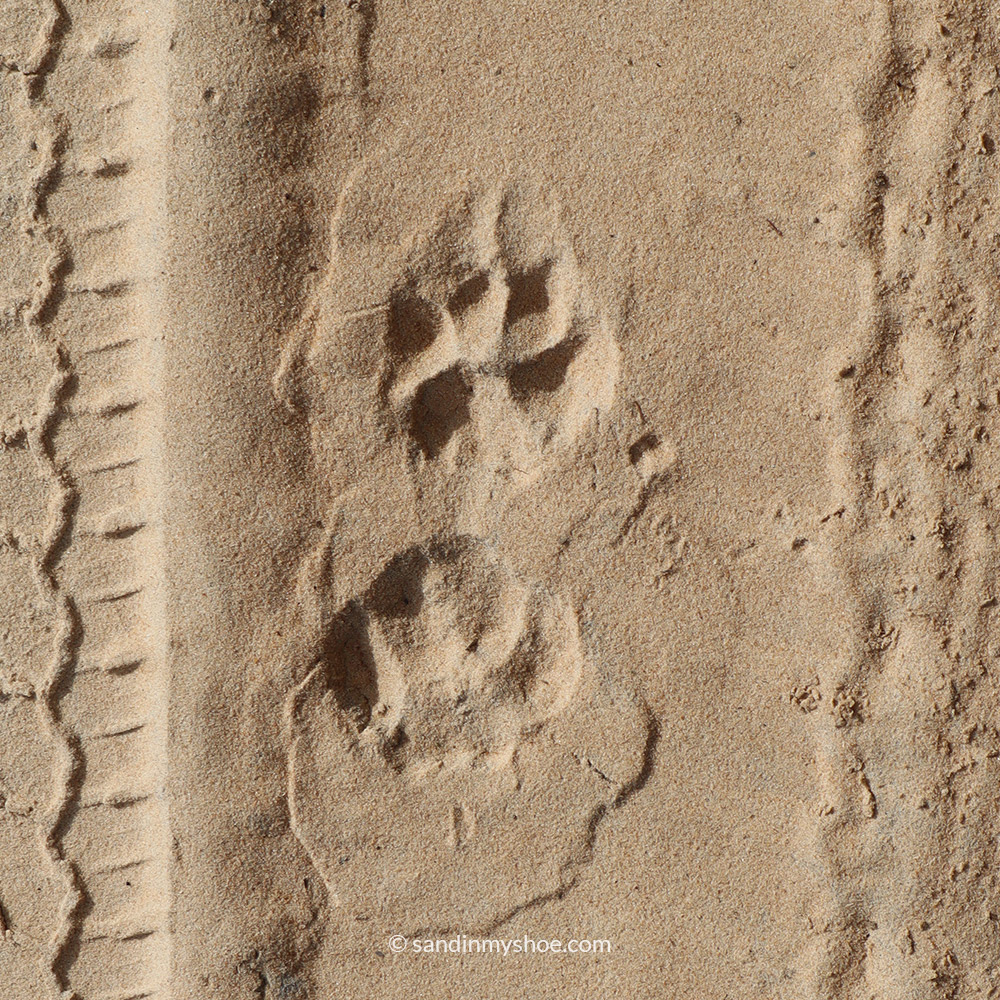
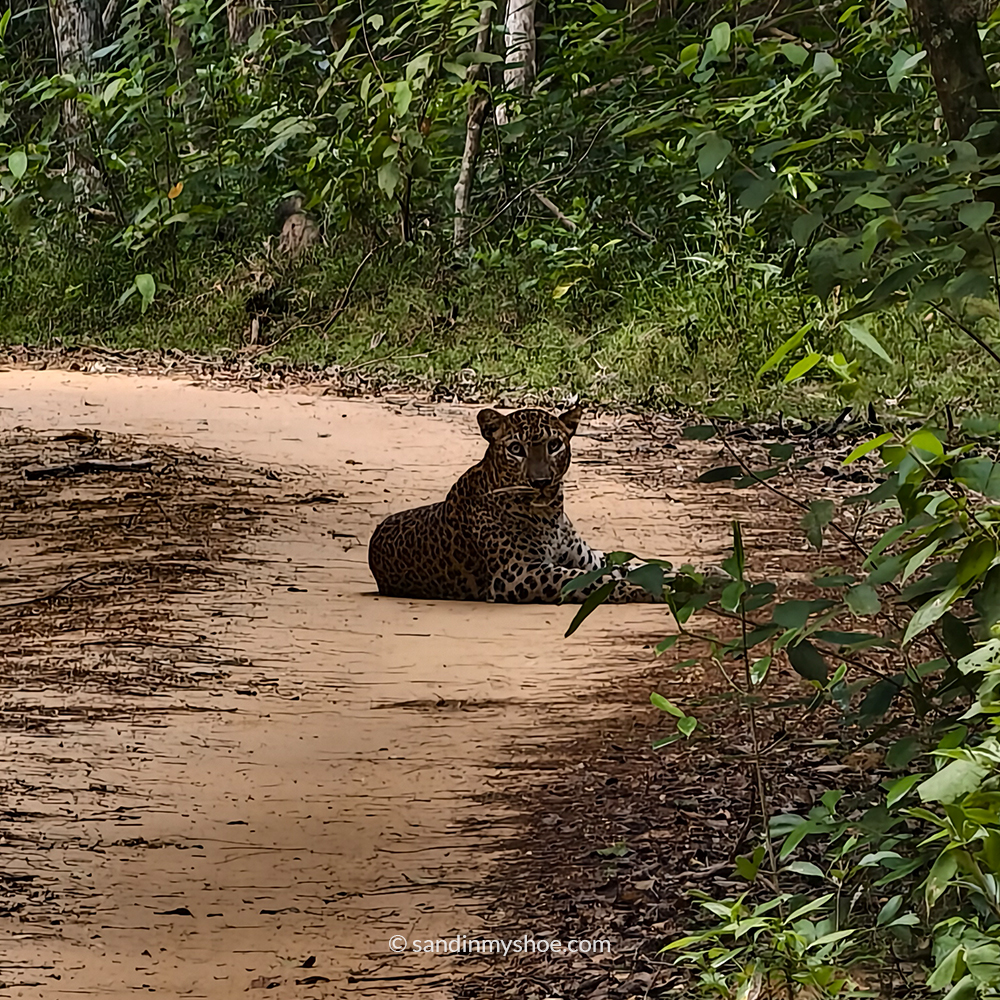
I spun in a slow circle, eyes darting through the bush and trees. No movement. No sound. No predator ready to pounce. Five seconds of scanning, then I dashed for the cap, grabbed it, and leapt back into the vehicle like I was fleeing a scene in an action movie.
My heart was pounding. I laughed it off, but adrenaline had flooded me in those brief seconds. The truth is, I knew the danger was minimal—leopards are elusive and rarely seen, especially in daylight. But there was still that tiny, wild thought: What if?
Wilpattu felt different from other parks I’d visited. It wasn’t just about spotting animals—it was about feeling small in a place where nature still ruled. The stillness wasn’t boring; it was tense, charged, alive. Every rustle could be something, or nothing.
That quick hop off the jeep—just to grab a cap—summed up the energy of Wilpattu for me: calm on the surface, wild underneath. You respect the rules of the wild, even when the danger seems distant.
Conclusion: Left Side of the Road, Right State of Mind
I began this journey thinking I’d just be navigating tuk-tuk traffic and visiting a few national parks. Instead, I learned how to dodge elephants, survive a police stop without a bribe, really enjoy a vegetarian feast, and swim in crocodile-infested waters.
But more than that, I saw how Sri Lanka’s wild beauty is matched only by its people’s calm, generosity, and warmth. Behind every warning sign or chaotic street was someone ready to share a laugh, a meal, or a moment.
In the end, it wasn’t the left-side traffic that I had to adjust to — it was the pace. The openness. The unpredictability that turned small mishaps into stories, and detours into discoveries.
I came for the adventure. I left with a profound respect for the land and its wild inhabitants.

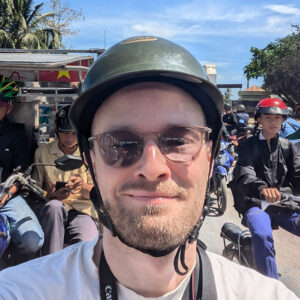
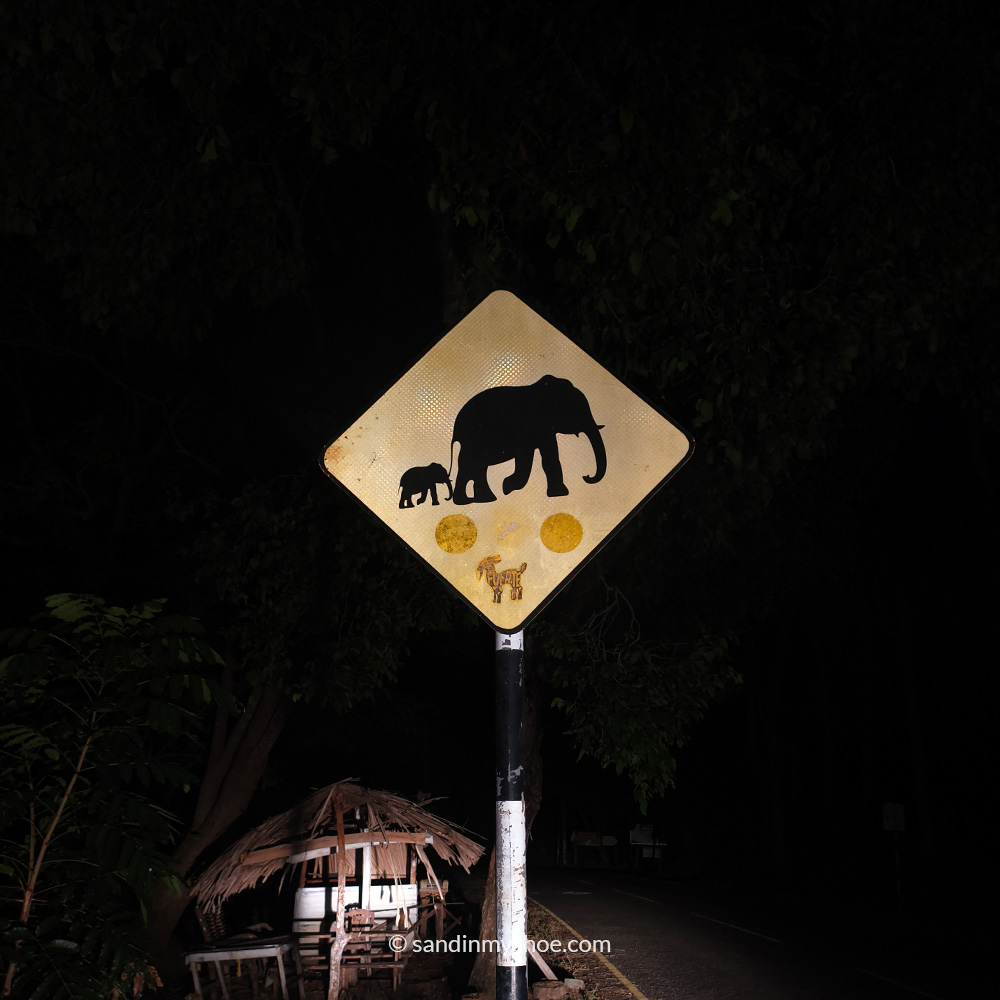




No comments yet, be the first one!
I appreciate hearing from you. If you have any suggestions, questions, or feedback, please leave a comment below. Your input helps ensure the information stays relevant and up to date for everyone.
Thank you for sharing your thoughts!